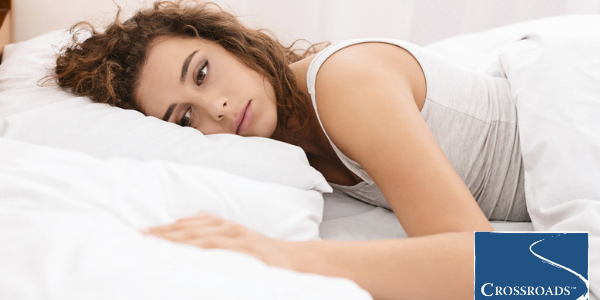Getting a good night’s rest is key to feeling awake, alert, and energetic the next day. When you haven’t slept well, you’re more likely to feel tired and irritable in the morning making it difficult to be as productive as you would like. Several nights of poor sleep can take a serious toll on your well-being. This leads some people to turn to drinking before bed in order to help them drift off, but the effects can be the opposite of what they intended. March 11-16 is National Sleep Awareness Week and a great time to explore the impact of alcohol on sleep.
Disrupted Sleep
It is true that alcohol can help you fall asleep more quickly, but this is only a temporary fix and can actually exacerbate sleep problems. Alcohol disrupts your body’s natural circadian rhythm, so while you’ll sleep deeply at first, this is soon followed by lighter and more disrupted sleep. Once your body metabolizes the alcohol, the effects wear off, and this tends to happen more quickly for women than men. You may notice that you have trouble falling back to sleep, and when you wake up, you don’t feel as rested and refreshed.
Daytime Distractions
Because alcohol disrupts REM sleep – which is the most restorative sleep state – the effects can be felt the next day. For instance, you may find that it’s harder to concentrate and focus on your work. You may be yawning throughout the day and feeling more tired than usual. In turn, you may be more irritable and have less patience. All of these things can affect your performance at work, school, and home.
And because the effects of poor sleep linger and make you feel more tired, it can be tempting to have another drink at night to help, which starts the negative impact of alcohol on sleep all over again. It can become a vicious cycle and increase risk of developing a substance use disorder such as alcoholism.
Natural Sleep Enhancers
Instead of relying on alcohol to help you sleep, focus on using more natural methods. For instance:
- Make sure that your room is cool and dark when you’re ready to go to bed, and only use the bedroom for sleep, not work, so your brain makes this association.
- Cut down on the amount of caffeine you have starting in the late afternoon. Caffeine is a stimulant and can keep you up, so let it wear off by evening.
- Put away the electronics at least an hour before you plan to go to bed. Unwind by reading a book, journaling, or just engaging in friendly conversation with loved ones.
- Exercise earlier in the day to burn off excess energy and tension rather than at night.
- Stick to a consistent routine – even on weekends – of when you go to bed and wake up each day to get your body on a schedule.
If you find that drinking is the only way you can fall asleep, it may be time to seek help. Addiction is a serious disease that can affect all aspects of your life. It may start with a drink before bed but turn into much more. You’ll not only feel the impact of alcohol on sleep, but also on mental health, family, finances, work, and relationships too.
Crossroads provides gender-responsive treatment for addiction and co-occurring disorders and can help you get your life back on track as you overcome substance use and embrace recovery. Learn ways to cope with stress and promote sleep without the use of alcohol so you can be functioning at your best each day. If you’re ready to remember who you wanted to be and overcome addiction, seek help from a trusted recovery center like Crossroads.


















